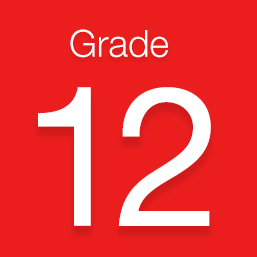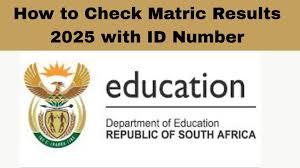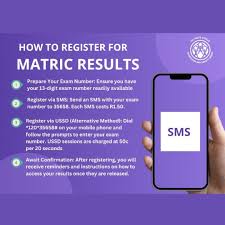Introduction: Why Life Orientation Matters in Matric
Life Orientation (LO) is a unique subject in the South African school curriculum. Rather than being just another “theory-heavy” subject, Life Orientation at Grade 12 level is designed to connect your schooling with real-life skills. It combines self-development, civic responsibility, health awareness, and career planning into one framework—and your success in this subject can have a real-world impact on your adult life, mental health, workplace success, and ability to thrive in South Africa and beyond.
As you approach your final year, you’ll realize that notes, summaries, and revision booklets are more than just study aids—they are essential tools. For 2025, the Western Cape Education Department (WCED) and several other reputable sources have compiled free, CAPS-aligned resources, ensuring every learner has access to high-quality support. This guide draws on the best of those resources, showing you how to use them and giving you quick links to help you prepare with confidence.
Free Grade 12 Life Orientation Revision Resources
- Gr. 12 T2 Life Orientation: Revision Booklet (WCED) [Free PDF]
- Download: Revision Booklet PDF
- Life Orientation Grade 12 Guide for Learners in Preparation
- Download: Preparation Guide PDF (Grey High School)
- 2020 Grade 12 Life Orientation Summary
- Download: Summary Notes (Stanmore Physics)
- Teacher Guides and Support (Useful for Learners Too)
How to Use These Life Orientation Grade 12 Notes and Booklets
To get the best out of these free Life Orientation resources, follow this step-by-step approach:
- Start with the Syllabus Overview
- Open the Revision Booklet and scan through its contents page to see which topics appear every term. This gives you the “big picture.”
- Dive Deep by Topic Using the Preparation Guide
- The Grey High School Preparation Guide breaks down key concepts using simple language and sample questions.
- Summarize with the 2020 Summary PDF
- Use the Stanmore Summary Notes to create short, color-coded mind maps for the “must know” bullet points in each section.
- Apply Teacher Guides for Practice Questions
- These extensive Teacher Guides can be used for bonus practice: they often include unseen sample exam questions, model answers, and useful marking rubrics.
Key Themes in Grade 12 Life Orientation for 2025
Let’s break down the main curriculum topics and identify what you’re most likely be tested on, with pro tips from the revision booklets and guides.
1. Personal Development and the Self in Society
This section covers:
- Stress, stressors, and coping mechanisms (including how to identify personal stress triggers and effective, healthy management skills);
- Conflict resolution (interpersonal and intrapersonal);
- Building positive relationships (communication, empathy, assertiveness).
Why it matters: These skills help you navigate adult life, build resilience against anxiety or depression, and succeed in future workplaces.
Study Tip: Make a table for “Types of Stressors” + “Symptoms” + “Coping Strategies.” Link each with a real-life example for a more memorable summary.
2. Health, Well-being, and Personal Lifestyle Plans
This includes:
- Components and benefits of balanced nutrition
- Importance of regular physical activity (and its impact on academic as well as emotional outcomes)
- Substance abuse, HIV & AIDS, sexual health, and disease prevention
- Creating a personal health/fitness plan
Why it matters: Sustainable health habits begun in high school lay the foundation for your 20s and beyond.
Sample Mind Map: Draw a “Healthy Life” center bubble, branch off into “Nutrition,” “Exercise,” “Hygiene,” and “Prevention.” Add one fact or tip per branch.
3. Social and Environmental Responsibility
Topics:
- Environmental hazards, sustainable living, climate change activism;
- Community volunteering/service;
- Rights and responsibilities in society.
Why it matters: Participation and leadership in your community enhances your CV, supports bursary/scholarship applications, and grows your sense of purpose.
Pro Activity: Join (or create) a school recycling project or community clean-up; use this as an example for project-based questions.
4. Democracy and Human Rights
You need to know about:
- The Bill of Rights (and how to defend your rights in social or school settings);
- Discrimination and redress;
- Media literacy (interpretation of news, social media, propaganda).
Why it matters: A deep understanding of these areas empowers you to speak up against injustice—plus, essay questions in Matric LOVE real-world case studies!
Pro Tip: Learn the main sections of the Bill of Rights and find a current news article illustrating its application or failure.
5. Career and Career Choices
Covered here:
- Career pathing, subject choices, and portfolio creation
- Further study options (universities, TVET, apprenticeships)
- Entrepreneurship vs. formal employment
- Unemployment: causes, consequences, and innovative solutions
- Financial literacy for young adults
Why it matters: Grade 12 is your launchpad to the adult world—knowing your options lets you take control of your destiny.
Action: Use the Preparation Guide’s tips to draft a basic CV, write a motivation letter, or map your plan A/B/C after Grade 12.
6. Learning Strategies and Assessment Skills
Essential for success:
- Effective time management and study skills (planning, goal setting, avoiding procrastination)
- Preparing for and excelling in your NSC/Matric exams
- Understanding the marks breakdown, what counts as “school-based assessment” and final exams
Pro Study Hack: The revision booklet’s last unit usually contains checklists, tips, and “exam-day” check-ins to boost your marks even if you feel nervous.
Sample Table: Quick Revision Organizer
| Topic | Key Points | Action Step / Example |
|---|---|---|
| Stress and Coping | Identify stressors; use active listening; seek support | Name 1 personal & 1 observed stressor |
| Nutrition, Fitness | Balanced diet; regular exercise; avoid substance abuse | Log your meal/exercise for a week |
| Rights and Democracy | Bill of Rights; discrimination; responsible citizenship | Write a short paragraph on a recent case |
| Careers & Further Study | CV, application letter, entrepreneurship, work ethics | Draft your own sample CV |
Strategies for Success in LO (Grade 12, 2025)
- Don’t Rote Learn—Connect Concepts: For each topic, think of an example from your life, school, or community.
- Practice Essay Writing: Use model answers in the booklets to frame your own responses, focusing on clear structure (introduction, body, conclusion).
- Peer Discussion: Form a WhatsApp or study group; teach a friend one topic per week.
- Use Marking Guidelines: After doing a past paper, mark it yourself with the teacher support memos for instant feedback.
- Stay Updated: Real-world events inform LO exam questions, so regularly scan news headlines or government/social media campaigns.
Final Thought: Why These Resources are a Gamechanger
South Africa’s education department and schools like WCED, Grey High, and others realize many learners don’t have expensive textbooks or tutors. By making these Life Orientation Grade 12 notes





